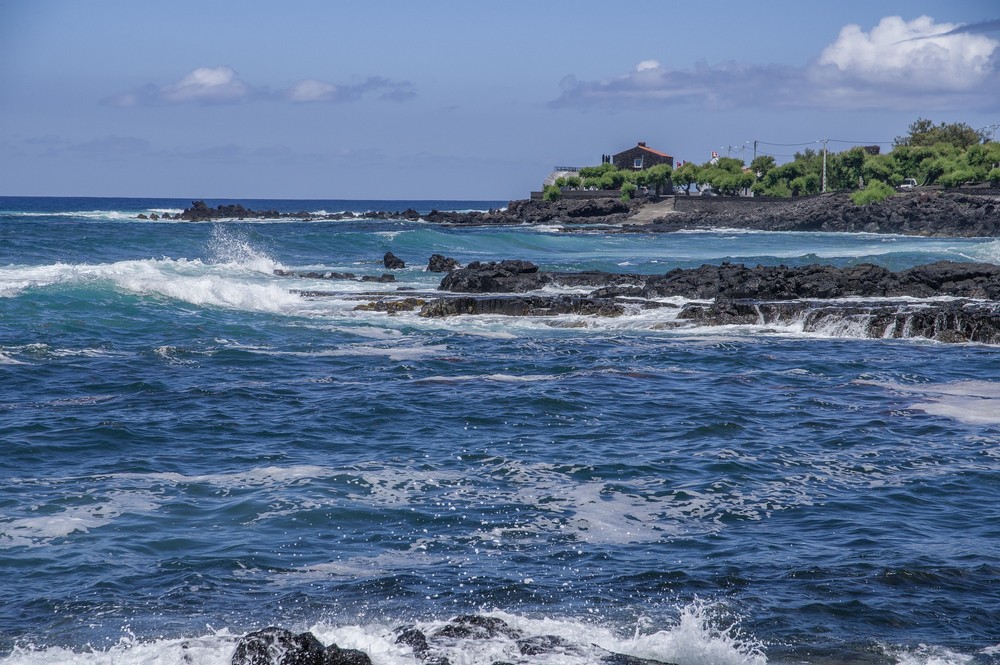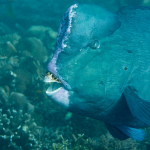
Diving in the Azores is considered to be some of the best in the world. The waters around the Azores are known for their rich marine life, including a wide variety of fish, corals, and other marine creatures.
One of the biggest attractions for divers in the Azores is the opportunity to see large marine animals such as whale sharks, manta rays, and several species of dolphins and whales. The Azores is also known for its underwater volcanic landscapes, including deep underwater vents and geysers, that provide a unique and otherworldly diving experience.
The diving conditions in the Azores can vary depending on the time of year and location, but generally offer good visibility and moderate to strong currents. There are several diving operators and schools located throughout the Azores that offer a range of courses and tours for divers of all skill levels.
It’s worth noting that diving in the Azores is subject to strict regulations in order to protect the fragile marine environment. Divers are expected to follow all rules and guidelines, including avoiding contact with marine life and avoiding damaging the underwater environment.
Azores, Portugal, is often claimed to be the best scuba diving destination in Europe. From Pico island, you can access Princess Alice, a world-famous dive site full of exciting species. You can also dive with the fastest sharks on earth, the blue sharks.
Which Azores island has the best diving?
All of the Azores islands offer excellent diving opportunities, each with its unique characteristics and underwater landscapes. The best island for diving in the Azores can depend on the type of diving you prefer and what you hope to see.
Sao Miguel, the largest island in the Azores, is a popular choice for diving, with a range of sites suitable for divers of all skill levels. The island’s volcanic landscape provides a unique underwater environment, with dramatic rock formations, underwater caves, and vents.
Faial is another popular choice for diving, with clear water and a range of dive sites that include underwater caves, volcanic vents, and a variety of marine life, including several species of sharks.
Pico, home to the highest mountain in Portugal, is also known for its excellent diving opportunities, particularly for those interested in seeing large marine animals such as manta rays, dolphins, and whales. The island’s volcanic landscape also provides unique diving opportunities, with underwater cliffs and caves.
Other islands in the Azores, such as Terceira, Santa Maria, and Flores, also offer excellent diving opportunities, with a range of sites suitable for divers of all levels. Ultimately, the best island for diving in the Azores will depend on your personal preferences and interests.
What month is best for diving in Azores?
The best time for diving in the Azores is generally considered to be from May to October, which is the peak tourist season in the region. During these months, the water temperature is mild and comfortable, and visibility is typically excellent, ranging from 20 to 30 meters or more.
The summer months from June to September tend to be the warmest and the busiest, with more tourists and dive operators operating in the area. However, the water can be cooler during early and late season, particularly in May and October, but still comfortable for diving with proper wetsuits.
It’s important to note that diving conditions can vary depending on the location and weather conditions. It’s always a good idea to check the local diving conditions and weather forecast before planning your trip and choosing your dive sites.
How deep is the diving in the Azores?
The depth of diving in the Azores varies depending on the location and dive site. The Azores are home to a range of diving sites, including underwater volcanic formations, deep-sea trenches, and shipwrecks, that provide divers with a range of depths to explore.
Some of the shallower dive sites in the Azores can be as shallow as 5-10 meters, while other sites can go as deep as 30-40 meters or more. For experienced technical divers, there are several sites in the Azores that can reach depths of over 100 meters.
It’s worth noting that some of the best dive sites in the Azores can be subject to strong currents, which can add an extra level of difficulty for divers. It’s important to choose dive sites that are suitable for your skill level and to follow all safety guidelines and regulations when diving in the Azores.
You may also like to read this article about: Are there sharks around the Azores?
Do you need a wetsuit in the Azores?
You will need a wetsuit for diving in the Azores. While the water temperature in the Azores is generally mild and comfortable during the summer months, it can still be quite cool, particularly during the early and late seasons.
The water temperature in the Azores can vary depending on the location, depth, and time of year. During the summer months, the water temperature in the Azores typically ranges from 18-23°C (64-73°F), while during the winter months, the water temperature can drop to around 16°C (61°F).
For most divers, a 5mm wetsuit is recommended for diving in the Azores during the summer months, while a 7mm wetsuit may be necessary during the winter months or for diving at deeper depths. Some divers may also prefer to wear additional thermal protection, such as a hood or gloves, particularly during the winter months or for dives that may last longer than an hour.
Better still, you should consider diving in a drysuit when the waters are colder.
It’s important to wear a wetsuit that fits well and is appropriate for the conditions you will be diving in to ensure that you stay warm and comfortable during your dive.
Do the Azores have reefs?
The Azores are primarily volcanic islands, and as such, the underwater landscape around the islands is dominated by volcanic formations, underwater cliffs, and rocky outcroppings rather than traditional coral reefs.
However, there are some areas in the Azores where you can find small coral formations, including black coral, which is common in deeper waters around the islands. Additionally, there are some areas around the islands where you can find underwater seamounts, which can support a range of marine life and offer a unique diving experience.
While the Azores may not have the same type of coral reefs found in other parts of the world, the underwater landscape around the islands is still diverse and home to a wide variety of marine life, making it an excellent destination for diving and exploring the ocean.
I hope you enjoyed this article about is diving good in the Azores
I’d love to hear from you. Tell us about your adventures of diving and snorkeling, in the comments below. Please also share your photos. Either from your underwater cameras or videos from your waterproof Gopro’s!
If this article hasn’t answered all of your questions. If you have more questions either about snorkeling or scuba diving (or specifically about is diving good in the Azores), please comment below with your questions.
There will also be many more articles about scuba diving (and snorkeling) for you to read and learn about these fabulous sports.
Have fun and be safe!



